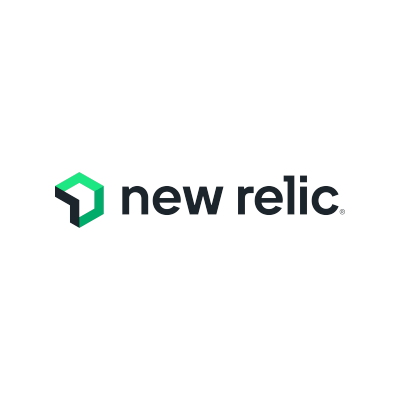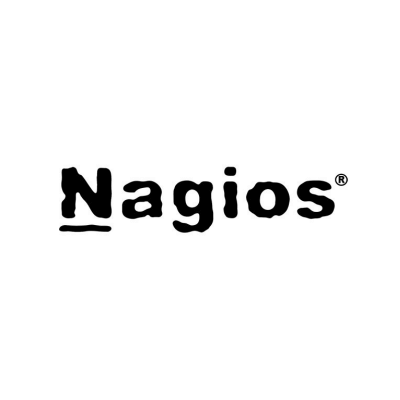15 Online Resources to Automate Your Web Development Tasks
In an era where the pace of technological innovation continues to accelerate, web development can seem like an ever-evolving landscape. It’s crucial to keep up-to-date with the latest tools and resources to stay competitive. One effective way to manage this constant evolution is through automation. Automation in web development not only saves valuable time but also reduces the scope of manual errors, making processes more efficient and reliable.

This article presents a curated list of 15 indispensable online resources that can help automate various aspects of web development. From code repositories and text editors to automation servers and cloud platforms, these resources cover a wide spectrum of tools that a web developer needs in their arsenal.
Top 15 Tools for Web Development Automation

1. GitHub
More than just a code repository, GitHub offers developers numerous features to streamline the development process. From Actions for workflow automation to Dependabot for security updates, it’s a cornerstone of modern development.
2. Jenkins

Jenkins, a renowned open-source automation server, is integral in implementing Continuous Integration and Continuous Delivery (CI/CD) processes in software development. This server plays a pivotal role in the entire software development life cycle, enhancing the efficiency of building, testing, and deploying software. Jenkins integrates seamlessly with a wide variety of testing and deployment technologies. This flexibility makes it possible to create bespoke pipelines that match the unique requirements of each project, resulting in improved code quality and accelerated delivery times.
3. Docker
Docker‘s container platform has revolutionized the way developers deploy, scale, and manage applications. This platform provides isolated environments or ‘containers’ that hold all the necessary components an application needs to run, ensuring consistency across different development stages and release cycles. This separation of concerns allows developers to focus on their application’s functionality without having to worry about discrepancies between development and production environments. Docker’s ability to maintain this consistency, along with its support for microservice architectures, makes it an indispensable tool for modern web development. So whether you own a SEO agency like Budget SEO or a fashion company, this will be an essential tool for your web development team.
4. Sublime Text

As a powerful text editor, Sublime Text is indispensable in a developer’s toolkit. The software provides ‘Goto Anything’ for quick navigation to files, symbols, or lines, saving valuable time. It also offers multiple selections, which enables developers to make changes to multiple lines or variables at once. These features together streamline and speed up the coding and editing process, making Sublime Text a go-to tool for efficient web development.
5. Selenium

Selenium plays a key role in the world of web application testing, offering a robust framework for automating browsers. This tool is vital for ensuring the functionality and reliability of web applications across different browsers and platforms. Selenium’s single interface caters to test scripts in several programming languages like Java, C#, and Python, making it accessible for a diverse range of development teams. Its ability to mimic human interactions and generate user-friendly reports makes Selenium an indispensable tool for delivering seamless user experiences.
6. AWS DevOps

Amazon Web Services (AWS) provides a comprehensive suite of tools and services that supports robust and reliable software development and delivery. This suite is pivotal for implementing DevOps practices, helping teams to increase their deployment frequency and decrease their failure rates. AWS DevOps services include features for continuous integration, microservices, and monitoring and logging. With the scalability and versatility of AWS, developers can create and manage a continuous integration and delivery pipeline, automate their release processes, and monitor application and infrastructure performance, making it a one-stop solution for modern software development.
7. Bitbucket

Bitbucket stands out as a versatile Git-based source code repository hosting service. Its features like pull requests and branch permissions foster collaboration among development teams, making it easier to review and integrate changes. Bitbucket offers both commercial plans and free accounts, making it an accessible tool for teams of all sizes. Additionally, Bitbucket’s seamless integration with other Atlassian tools like Jira and Confluence and its built-in continuous delivery features streamline the software development process, making it a comprehensive solution for version control and code collaboration.
8. Slack

Slack moves beyond the realm of a simple communication platform with its various app integrations that allow for task automation. The application can be configured to send alerts for specific events, such as website downtimes, or when a new user signs up, which is integral for maintaining smooth operations. Additionally, Slack’s integration with other software tools creates a centralized hub for developers to monitor their projects, making team communication and project management effortless.

9. Trello
Trello, a versatile Kanban-style list-making application, is a staple for project management in web development. Its intuitive board and card system make it easy to visualize the workflow, allowing teams to track the progress of individual tasks and the project as a whole. Its ability to assign tasks, set deadlines, and categorize tasks helps in streamlining and automating web development workflows. This system’s efficiency and simplicity make Trello an exceptional tool for tracking and progressing tasks.
10. Ansible

Ansible is an open-source software provisioning, configuration management, and application-deployment tool, Ansible allows infrastructure as code, collaborative deployment, and continuous delivery.
11. Puppet

Puppet provides scalable solutions for managing your infrastructure, allowing businesses to deliver software faster and more securely. The automation it brings to the infrastructure management process eliminates the scope for manual errors, thereby reducing deployment time. It ensures consistency across various development, testing, and production environments, thereby reducing the chances of unexpected issues during production. Its flexibility, ease of use, and efficient management of system configurations make Puppet an invaluable tool for developers.
12. New Relic

New Relic‘s observability platform provides real-time insights into application performance, aiding in error tracking, understanding customer experiences, and facilitating data-driven decisions.

13. Nagios
A comprehensive monitoring system, Nagios identifies and resolves infrastructure issues before they impact critical processes. It offers complete monitoring of applications, services, servers and switches.
14. Heroku

Heroku operates as a comprehensive cloud platform that enables developers to build, run, and manage applications entirely in the cloud. This liberates developers from the complexities of infrastructure management, allowing them to focus on coding and innovation. It provides an abstracted environment where developers can execute their projects without worrying about underlying hardware or network setup. With the ability to scale as per demand, Heroku empowers developers to maintain optimal performance for their applications, regardless of user volume.
15. Grunt

Grunt is a JavaScript task runner that automates numerous repetitive tasks, elevating the efficiency of the web development process. Tasks such as minification, which reduces file size, and compilation, which transforms code into a format that can be run on a browser, become automated with Grunt. It also assists with unit testing to verify code functionality and linting to maintain code quality. By taking over these repetitive tasks, Grunt allows developers to concentrate on more complex aspects of web development, thereby increasing productivity and quality of work.
Summary
Navigating the web development landscape can be a challenging endeavor without the right tools at your disposal. With these 15 online resources, you can automate tasks, boost productivity, and ensure the timely delivery of high-quality products. These tools are the stepping stones to successful web development, aiding in every stage from concept to deployment. However, remember that each tool serves a different purpose, and the choice of tools should align with your specific needs and workflows. As you unlock the potential of these resources, you’ll experience a new level of efficiency, taking your web development game to the next level.
About the Author

Anthony Lucas is the CMO of Media Insider. He frequently contributes articles about marketing, web development and SEO to authoritative websites.







